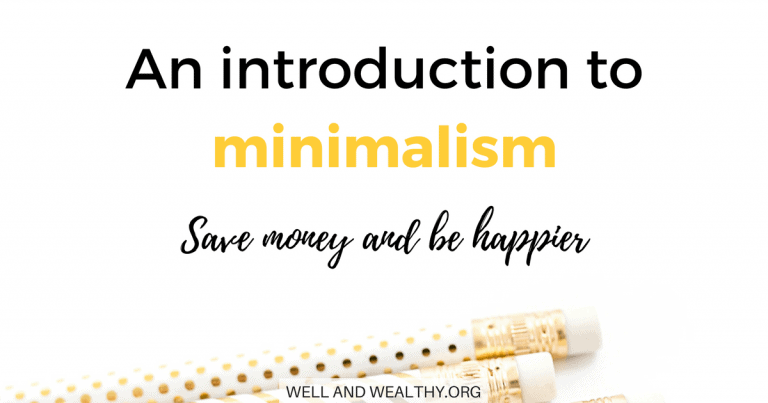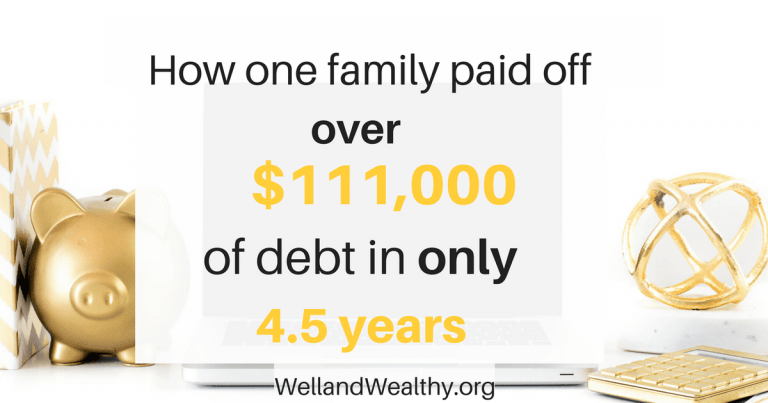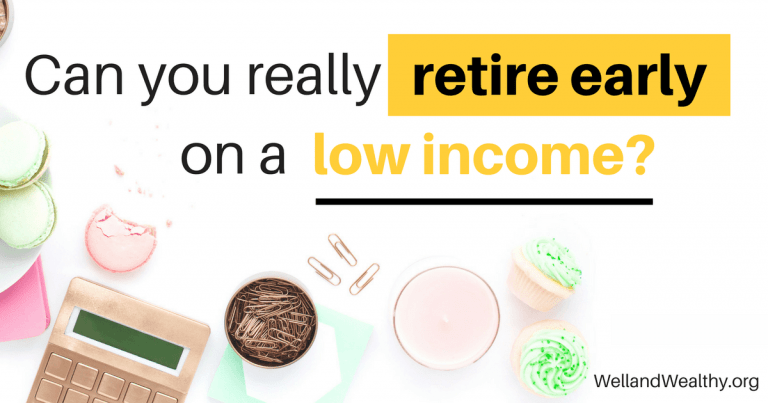Why Looking Poor Is Important: Financial Success Secret
Have you ever thought about why the rich often don’t show off their wealth? It might be because looking poor is actually a secret to getting rich! In our world, where looks and image are everything, it’s tempting to keep up appearances. But what if living simply was the real path to wealth and happiness?
A study by the American Psychological Association (APA) shows 72% of Americans stress about money. The UK’s Money and Pensions Service (MaPS) found 62% of adults worry about their finances, with 48% fretting weekly. Clearly, money stress is common, but maybe changing how we see wealth is the answer?
Trying to look successful can cost a lot, with people spending on fancy clothes, cars, and gadgets. But what if we saved our money instead? Adopting a genuine, simple way of life could boost our finances and happiness, helping us reach our goals.
It’s time to stop chasing after wealth that doesn’t make us happy. Research shows extra money beyond basic needs doesn’t boost happiness. So, why do we keep chasing wealth inequality?
Key Takeaways:
- Embracing a simpler lifestyle can lead to financial success and inner peace
- Societal pressure to maintain a wealthy appearance can be costly and stressful
- Focusing on building wealth, not just the appearance of it, is key
- True happiness comes from authenticity and fulfillment, not external validation
- Breaking free from the cycle of temporary satisfaction is essential for long-term financial stability
The Fallacy of Keeping Up with the Joneses
Ever felt the urge to seem wealthy, even if it costs too much? Today, wanting to match others’ wealth can feel like a big task. But is it worth it?

Trying to match others’ wealth can lead to a never-ending cycle. Studies link credit card debt to comparing ourselves to neighbors. Seeing others with fancy cars or designer clothes makes us want the same to fit in.
But, the cost of looking rich can be too high. The money spent on appearances can’t be used for better things. Always buying new things to look rich just adds to our expenses and stress.
The Social Pressure to Appear Wealthy
The urge to seem wealthy isn’t just about neighbors. It’s also about what society expects and class bias. People of color and women face different judgments based on how they look. Looking right can open doors to better jobs, respect, and pay.
Managers often judge candidates based on how they dress. Things like designer clothes and bags can help you get ahead. They act as keys to unlock social and professional doors.
The Financial Burden of Maintaining Appearances
Buying status symbols to get ahead can be very costly. Poor people might spend on fancy items to fit in, but it can lead to debt and stress.
Many think poor people would make smarter financial choices. But, we all can fall into the trap of spending too much. This can keep us in debt and financial trouble.
Instead of chasing appearances, focus on financial stability and true happiness. Let’s break free from the need to keep up with others. This way, we can invest in ourselves and secure a strong financial future.
Breaking Free from the Hedonic Treadmill
Ever felt like you’re always chasing happiness, but it doesn’t last? This is the hedonic treadmill. It shows how people usually go back to feeling the same, no matter what big things happen in their lives.

Understanding the Cycle of Temporary Satisfaction
Think about winning the lottery. The first joy is huge! But soon, that happiness fades, and you feel the same again. Losing something also brings sadness, but you adjust and feel normal again.
This cycle makes us spend more, trying to keep that happiness. But it leads to overspending, debt, and stress. Remember, “Money can’t buy happiness.”
Focusing on Authentic Happiness and Fulfillment
To escape the hedonic treadmill, we need real happiness and fulfillment. Studies show that experiences make us happier than things. By valuing meaningful relationships, growing personally, and doing things with purpose, we find lasting joy.
“The secret of happiness, you see, is not found in seeking more, but in developing the capacity to enjoy less.” – Socrates
Living simply and knowing what we really need helps us spend wisely. Waiting a bit before buying things helps us think about our long-term goals.
By leaving the hedonic treadmill behind, we can find true happiness and financial freedom. It’s time to focus on what really matters.
Embracing Simplicity for Financial Freedom
In today’s world, success is often linked to owning lots of stuff. But, embracing simplicity is the real path to financial freedom and true happiness.
Did you know 39% of Brits feel they must spend more to seem successful? This shows how much pressure we face to look good. Yet, 72% of Americans and 62% of UK adults worry about money. Is it worth losing our peace of mind for looks?

The answer is intentional living and conscious spending. By focusing on what’s important and cutting unnecessary costs, we can save more. This freedom lets us follow our dreams without money worries.
“The simplicity and intentionality of our spending habits directly impact our financial well-being and overall happiness.”
Living simply doesn’t mean giving up everything. It’s about making smart money choices that match our values. For example, choosing Hyundai or Toyota cars can save us a lot on maintenance. These savings can go towards new experiences, learning, or a secure financial future.
Real wealth comes from feeling confident and secure inside, not from what we own. By choosing simplicity and living with purpose, we can escape the endless chase for more. It’s time to redefine success and find true fulfillment through simplicity.
Investing in Yourself: The True Path to Wealth
Building wealth isn’t about showing off with expensive things. It’s about investing in yourself. By focusing on your education and skills, you lay a solid financial foundation. This opens doors to many opportunities!
Look at billionaires like Warren Buffett. He’s worth $130 billion but still lives in the same house he bought in 1958 for $31,500. Instead of buying a new car that loses value fast, spend that money on learning something new. This can increase your earning power.
Prioritizing Education and Skill Development
In today’s world, you are your most valuable asset. Investing in your growth and development prepares you for new chances and changes. Whether it’s learning a new language, a technical skill, or leadership, every investment in yourself is worth it.
“An investment in knowledge pays the best interest.” – Benjamin Franklin
Building a Strong Financial Foundation
Improving yourself is key, but so is a solid financial base. Make smart money choices like saving, investing, and cutting unnecessary spending. For instance, the average car insurance in the US is $2,150 a year. By comparing rates, you could save a lot, using that money to grow your wealth.
True wealth isn’t about appearances or following trends. It’s about investing in yourself, building a strong financial base, and enjoying freedom and security. Start improving yourself and watch your wealth grow!
Escaping the Trap of Survival Mode
Do you feel stuck in a cycle of financial stress? You’re not alone! Many Americans live paycheck to paycheck, struggling to make ends meet. It’s a constant fight to stay afloat, feeling like there’s no escape.
In survival mode, it’s tempting to upgrade your lifestyle with raises or bonuses. But this can lead to more costs, trapping you in a cycle of financial stress. Before you know it, you’re back to living paycheck to paycheck!
The Stress of Living Paycheck to Paycheck
Living paycheck to paycheck is incredibly stressful. You worry about paying bills, buying food, and keeping a roof over your head. It’s a cycle of anxiety and fear.
Robert Kiyosaki, author of “Rich Dad Poor Dad,” notes that the middle class often own liabilities like mortgages and car loans. These expenses quickly drain your bank account, leaving little to no savings.
Creating a Gap Between Income and Expenses
To escape survival mode, you need to create a gap between your income and expenses. This means reducing your expenses and increasing your income. It’s challenging, but essential for breaking free from financial stress.
“The poor and the middle-class work for money. The rich have money work for them.” – Robert Kiyosaki
Start by examining your spending habits. Can you cut back on groceries, entertainment, or transportation? Every little bit helps! Also, look for ways to increase your income, like a side hustle or a raise at work.
The goal is to create a gap so you’re not reliant on every paycheck. It may take time and effort, but the peace of mind and financial freedom are worth it!
The Power of Authenticity in Relationships
In today’s world, it’s easy to focus on money and stuff. But, this can make our relationships shallow. To create deep connections, we must be true and open with others.
Being open about money is key. Trying to show off wealth can attract the wrong people. But honesty builds trust and allows real connections to grow.
Attracting Genuine Connections
Being yourself draws real friends. People value you for who you are, not just what you have. Studies show that being honest and fair makes us feel good and want to be around each other more.
Building Lasting, Meaningful Bonds
For lasting relationships, focus on emotional closeness and shared values. Share your feelings and dreams with your closest friends. Vulnerability is key for creativity and growth in relationships. It lets us learn and grow together.
True wealth is in our relationships, not just money. By being honest and authentic, we find real connections that make our lives richer.
Why Looking Poor Is Important: Embracing Your True Self
In today’s world, social media makes us want to look wealthy. A huge 39% of Brits feel they must spend more to seem successful or happy online. But, what if embracing a simpler life could reveal your authentic self?
Looking poor isn’t about pretending. It’s about focusing on what truly matters. When you value your inner self over material things, you build real self-esteem and inner confidence. This confidence doesn’t rely on others’ opinions. It lets you follow your passions and build real connections.
Choosing simplicity doesn’t mean giving up. It means making choices that reflect your values. For instance, cars from Hyundai, Toyota, and Honda are much cheaper to keep up over 75,000 miles than luxury brands like BMW and Mercedes-Benz. By picking a practical, affordable car, you save money for things that truly add value to your life, like travel, learning, or following your dreams.
“Authenticity is the daily practice of letting go of who we think we’re supposed to be and embracing who we are.” – Brené Brown
True wealth isn’t about money or fancy clothes. It’s about living a life that’s true to you, with people who love and accept you. By embracing your real self and dropping the need to impress, you open the door to a happier, more fulfilling life of self-acceptance.
The Confidence of True Wealth
Have you ever thought about what true wealth really is? Is it just about having lots of money and fancy things? Or is there something deeper to it? Let’s explore the idea of real wealth together!
True wealth isn’t just about stuff and what others think. It’s about feeling secure and valuable from the inside. When you know who you are, you don’t need others’ approval to feel good. You find happiness from within, not from what you own.
Many people feel they must keep up appearances and spend money they don’t have. In fact, 39% of Brits feel pressured by social media to spend more money to appear successful or happy, according to States Credit Karma’s report. This stress affects many, with 72 percent of Americans experiencing financial-related anxiety, as reported by the American Psychological Association.
Focusing on Inner Security and Self-Worth
So, how do we escape the need for others’ approval and find true wealth? It begins with valuing ourselves from the inside. When we see our worth, we don’t need to buy things to prove it.
“Spiritual wealth leads to never being poor, while lack of it renders money ineffective.” – Unknown
Building spiritual wealth is crucial for lasting happiness. It’s about growing hope, faith, and love within. With a strong sense of purpose, we can face any challenge and find joy in the simple things.
Letting Go of the Need for External Validation
People with true wealth often prefer simplicity over showing off. They know their value isn’t in their stuff or status. They find happiness in being true to themselves and following their dreams.
So, let’s embrace true wealth’s confidence! By valuing our inner selves, we can stop seeking others’ approval. We can enjoy the journey and make real connections. That’s the way to true affluence and a rich life!
Redefining Financial Success
It’s time to rethink what financial success truly means to you. Is it just a number in your bank account? Or is it the freedom to live life as you want? Success is about aligning your money habits and money mindset with your financial values.
Wealth and luxury can bring comfort and new opportunities. But, focusing too much on material things can make life shallow. Research shows that more money doesn’t always make us happier after a certain point.
“Success is getting what you want. Happiness is wanting what you get.” – Dale Carnegie
Studies say that too much focus on individualism and materialism can harm us. Despite more money and wealth, anxiety and depression haven’t gone down in America.
True financial success is about having an abundance mindset. It’s seeing money as a tool to enhance life, not just a goal. It’s about building strong relationships, using time well, and focusing on health and happiness.
By defining success on your own terms, you can escape the constant need for more. Find joy in the moment. A money mindset that supports your happiness is key to true financial success.
The Long-Term Benefits of Living Below Your Means
Imagine the freedom and peace of mind that comes with a solid financial foundation. Living below your means helps you reach financial independence faster. It also brings more flexibility to your life.
Living below your means means spending less than you earn each month. This strategy helps you save for emergencies and make big purchases without debt. It also builds wealth for the future.
Studies show that saving a little more can shave years off your working life. It opens up more options for you.
Accelerating Your Path to Financial Independence
Financial independence is a goal many strive for. Living below your means is key to achieving it. By spending less and investing the difference, you build a strong financial foundation.
Consider these statistics:
- About one out of four U.S. consumers live paycheck to paycheck, according to a 2024 survey.
- It is recommended to keep the home purchase price to 2-3 times the household income to maintain financial stability.
- Car purchases should be kept to 50% or less of the household income to prevent overspending on a depreciating asset.
Smart decisions on major purchases and avoiding overspending free up more income for investing. Even 5% or less of your paycheck to retirement accounts can have a big impact over time.
Enjoying Greater Peace of Mind and Flexibility
Living below your means not only speeds up financial independence but also brings peace and flexibility. It reduces stress about money and allows for healthier choices and focus on what matters.
Financial stress is a significant concern for many Americans, with 73% citing money as their top worry.
Healthy financial patterns and an emergency fund for 3-6 months’ expenses reduce financial stress. This gives you more control over your life. It lets you pursue passions, take risks, and enjoy a secure financial future.
Real-Life Examples of Wealthy Individuals Who Embrace Simplicity
In a world where wealth often means spending a lot, some of the richest people choose simple lives. These frugal millionaires and billionaires are great wealthy role models. They show us that true happiness and success come from within, not from stuff.
Warren Buffett is a great example. He’s very rich but still lives in the same house he bought for $31,500 in 1958. His choice to live simply has helped him financially. Buffett’s way of being rich but not showing it off is a lesson in stealth wealth.
“Someone’s sitting in the shade today because someone planted a tree a long time ago.” – Warren Buffett
J.K. Rowling, the Harry Potter author, is another inspiring figure. She’s very successful but still lives simply. She focuses on her family, writing, and helping others. Rowling’s story teaches us that true wealth is in our passions and making a difference.
These wealthy role models teach us that simplicity and being true to ourselves are the keys to a rich life. By valuing experiences, relationships, and personal growth, we can find joy without needing lots of stuff. Let’s learn from them and redefine what it means to be wealthy!
Conclusion
Looking poor and embracing simplicity is key to a wealthy life. It’s not just about money. It’s about what truly matters, investing in yourself and your relationships. Finding contentment from within brings lasting fulfillment and peace.
Many successful people, like Mark Zuckerberg and Bill Gates, live modestly. They focus on long-term wealth. “The Millionaire Next Door” shows most millionaires live frugally and invest wisely.
Adopting a mindset that values true wealth has many benefits. 80% of financially savvy people hide their wealth. 60% feel less pressure from others. 75% find security in a humble lifestyle.
The path to true wealth is embracing your authentic self. Invest in your growth and meaningful relationships. Break free from the need to keep up with others. Success is not just about what you have, but who you become.






